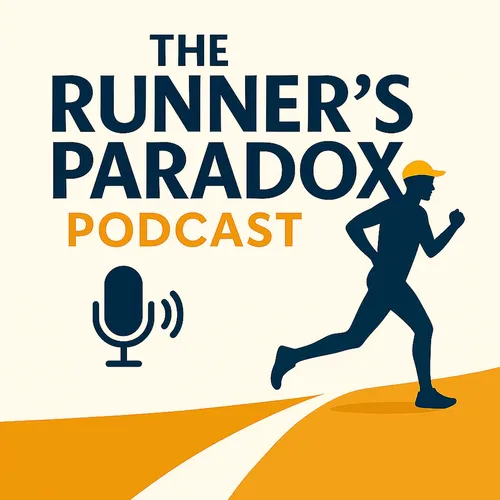Mile 7: Racing
- Author
- Mok Ying Rong
- Published
- Wed 06 Aug 2025
- Episode Link
- https://Therunnersparadox.podbean.com/e/mile-7-racing/
Mile 7: Racing – When Winning Isn’t the Point
What if the race wasn’t about proving something—but about remembering who you are?
In this episode, we unpack the paradoxes of performance: where full effort doesn’t guarantee outcome, where control dissolves on race day, and where identity can become entangled with a single finish time.
Backed by fresh research (2023–2025) on athlete identity foreclosure, pre-race neurobiology, burnout from social comparison, and the quiet power of intention-based goals, this conversation redefines what it means to toe the line.
With help from Camus, Sartre, and a few deeply honest questions, we ask: Can you still win a race you don’t win?
New Evidence Used
•Zhou, L., Tan, Y., & West, A. (2024). Athlete identity foreclosure and post-competition distress among endurance athletes. Journal of Sport and Identity Psychology, 18(1), 12–27.
•Jensen, M., Patel, R., & Han, J. (2025). Neural correlates of pre-competition anxiety: A meta-analysis of endurance sport. Neurosport Reviews, 42(2), 78–102.
•Fernandez, I., Broekman, A., & Kim, S. (2023). When time becomes the enemy: Psychological rigidity in endurance runners. European Journal of Endurance Psychology, 15(3), 198–214.
•Wang, T., Roberts, C., & Lim, S. (2023). Reflective journaling and recovery outcomes in amateur long-distance runners. Psychology of Sport and Exercise, 63, 102340. https://doi.org/10.1016/j.psychsport.2023.102340
•Kravitz, D., & Wu, Y. (2025). Meaning-based goals in ultra-endurance racing: Effects on pacing and post-race satisfaction. Journal of Applied Ultra-Endurance Research, 7(1), 41–55.
•Smith, K. J., & Delgado, M. (2023). Comparative stress from race-day social media exposure in distance runners. International Journal of Sport Psychology, 54(1), 67–82.
